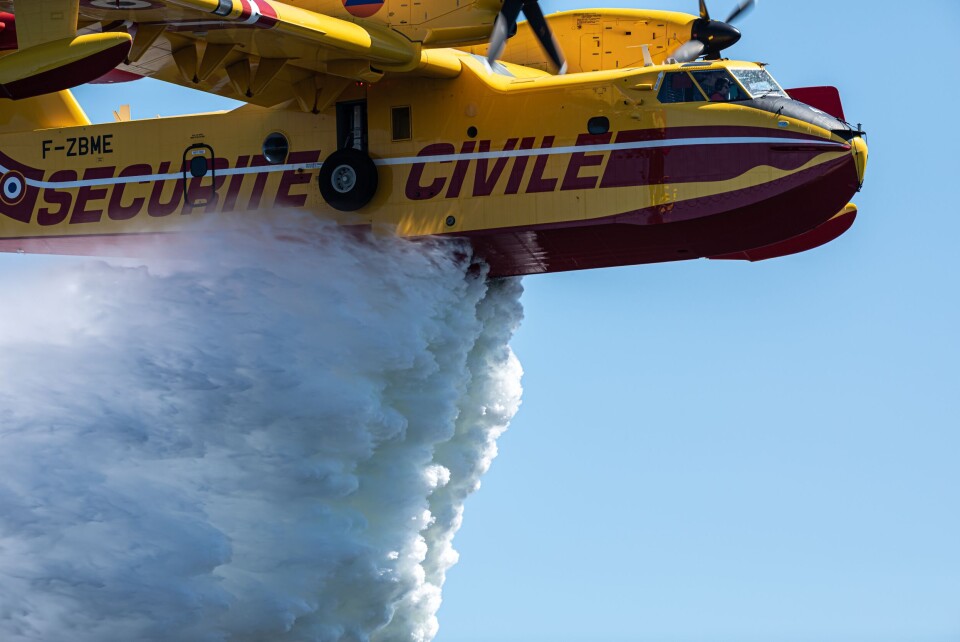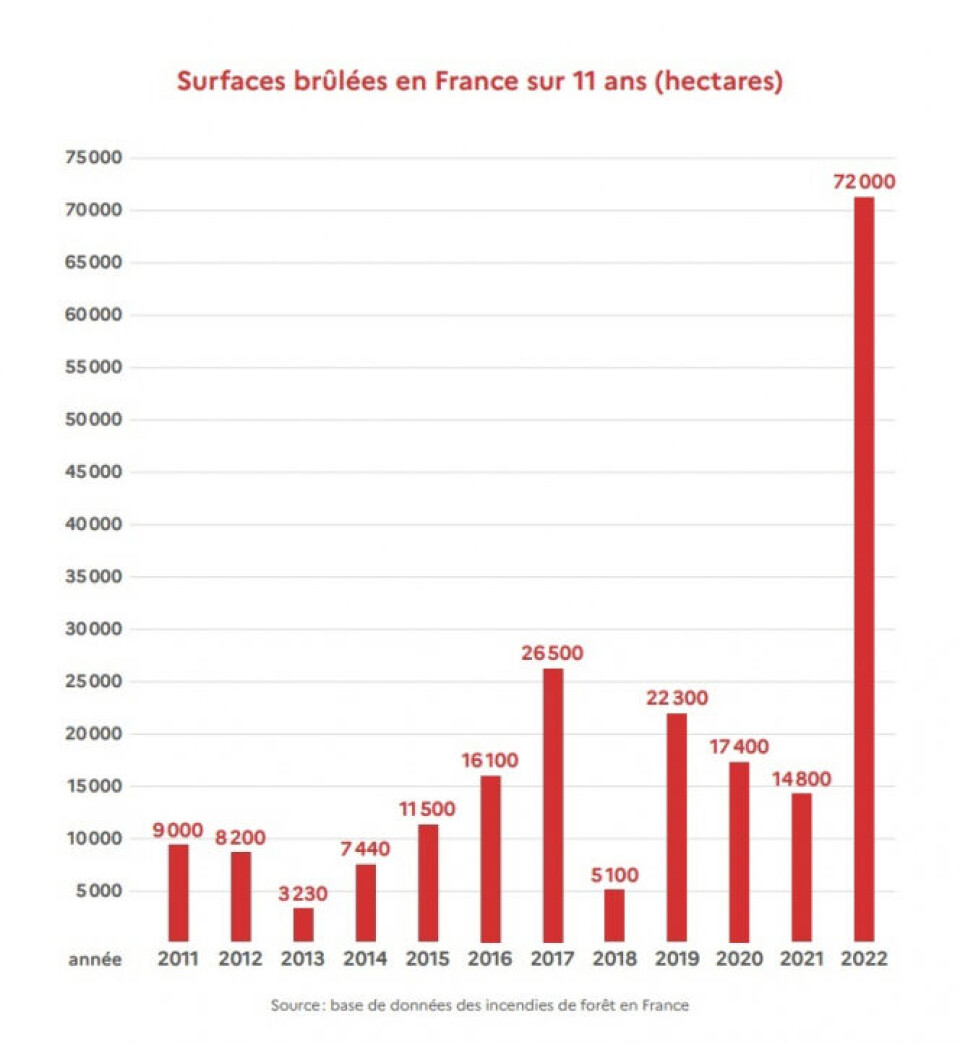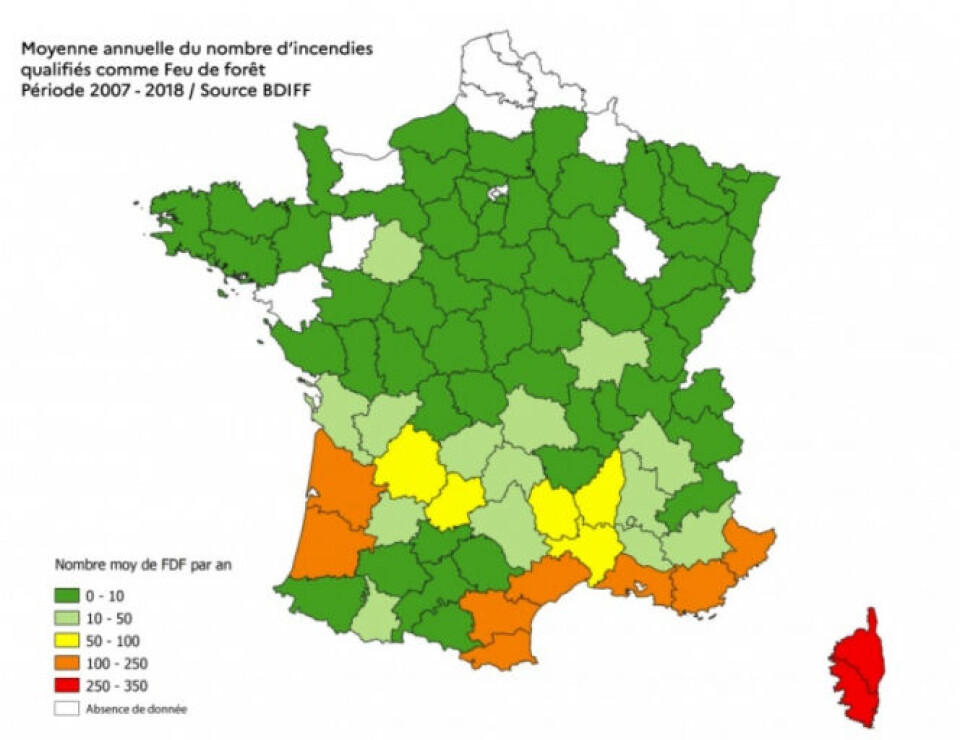-
Pistes closed, confinement orders: Alpine resorts deal with avalanche risk
Increased snowfall this weekend may cause further closures as busy school holiday season continues
-
Former French Interior Minister announces 2027 presidential candidacy
Bruno Retailleau recently asked prefectures to be tough on immigration
-
Ryanair axes Dublin-Rodez route but London connection retained
“We are disappointed but had no say in decision” say airport authorities
How France wants to stop another record year of wildfires
Wildfires burned 72,000 hectares in France last year, nearly five times the amount in 2021

After a record year of wildfires in France last year, the government has announced a range of new measures designed to avoid a repeat.
The plan, which was published on Wednesday (April 12), includes what it terms “concrete measures to prevent fires, strengthen action against them, and regrow the forests”.
Forest fires in Gironde destroyed 30,000 hectares last summer, including a major incident in La Teste-de-Buch. There were also major blazes in Auvergne-Rhône-Alpes, Corse, Occitanie, and Provence-Alpes-Côte d’Azur.
In total there were 72,000 hectares of land burned in France last year. That is the highest for at least 11 years and more than the previous four years combined, according to figures from the French government.
Read more: Fire-stricken French forest clearing and regeneration plans begin
Read more: GRAPHS: See how recent French wildfires compare to previous years
The following graph shows the surface burned in France over the past 11 years (in hectares)

Map: Agriculture.gov.fr
How France plans to prevent wildfires
1. More fire fighting measures by air
Nine extra water bomber planes and helicopters are set to be made available this year, bringing the number from 38 to 47.
Four Bombardier planes and one helicopter will be stationed in Bordeaux from July 1. There will also be a second sécurité civile air base in Nîmes (Gard).
The minister said that the government would be allocating €180million to fire and rescue services (services départementaux d'incendie et de secours, SDIS), which will fund 1,100 extra fire engines.
France’s interior minister Gérald Darmanin said: “This is the first time that the state is investing so much.”
2. A forest fire ‘weather forecast’
Another new measure will see new ‘forest fire forecasts’, with risk alerts issued.
The ‘forecast’ will be presented by weather forecaster Météo France every afternoon, from mid-May to the end of September. One map will show the risk for the next day, and another map will show the day after that, in a bid to give early warnings.
It is hoped this will allow two Canadair planes to be stationed in Gironde 48 hours prior to any blaze starting.
The forecast will be “presented in the form of a risk by department, on a four-point scale,” according to the government’s plan. “Prevention messages will be sent for high-risk levels.”
The aim is that this prevention will “aim to address all fires within 10 minutes of its detection, during a period of high risk”.
The following graph shows the number of forest fires in France between 2007 and 2018.
Map: Ecologie.gouv.fr

3. More firefighters on the ground
A fourth sécurité civile unit will be stationed in Nouvelle-Aquitaine, with almost 600 military personnel. President Emmanuel Macron announced the creation of the new unit last autumn.
Mr Darmanin has signed a new agreement with representatives of two sécurité civile unions. The aim is to create specific functions, provisions, and training for both the ‘plane’ division and the ‘helicopter’ division.
This comes after the Senate recognised the particularly “dangerous nature” of these roles.
There will be 51 units this year, compared to 44 last year. Each will have a support and commander vehicle, and three forest fire groups (Giff) with 70 firefighters per group.
4. Increased communication
The plan is also set to offer extra financial support to local authorities to help them communicate and implement preventative measures such as clearing vegetation in at-risk zones.
These will focus “mainly on the improvement of protection at points where built-up areas and forested and wooded areas meet, which is where 80% of fires start”.
The Interior Minister said that “from March to June, a communication campaign will be dedicated to legal vegetation clearing obligations”.
The rules, called obligations légales de débroussaillement (OLD), state:
- All borders of built-up areas within 200 metres of forests must be cleared
- The clearing must be over a distance of 50 metres, regardless of the property’s borders
- This distance can be extended by 100 metres if ordered by the council
- Private access roads must also be cleared to a distance of 10 metres
Read more: Why the French government wants you to clear up your garden
The government has called for “better recognition of the danger of forest fires in urban planning policies, and to better inform owners and tenants of ways that properties are threatened”.
The ministry has also published advice for forest users on how to prevent fires, such as by clearing your garden of vegetation, and preparing your home to make it less vulnerable to fire.
How has the government plan been received?
Former firefighter and European fire management coordinator Sébastien Lahaye said the measures were helpful, but did not go far enough.
He told FranceInfo: “Just adding a few extra planes in the southwest won’t solve the problem. There’s a threshold [of fires] at which we don’t have enough planes to face up to 10, even 50 fires, starting simultaneously.”
Related articles
Wildfires in south of France: 10,000 hectares burned and counting
South-west France giant wildfires still spreading, situation worsens
























